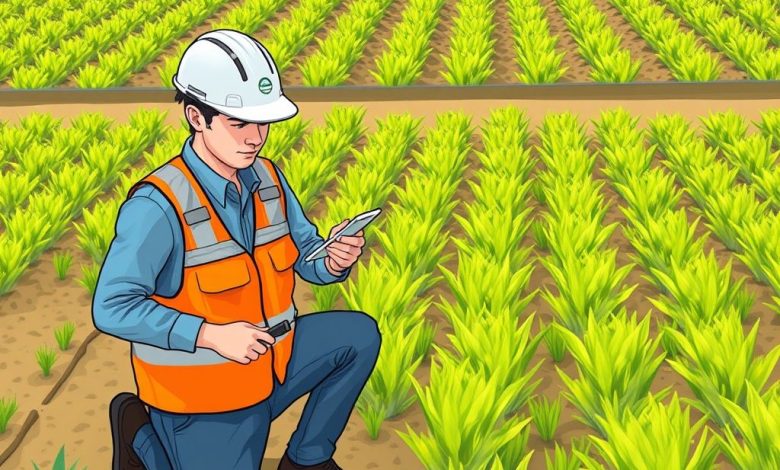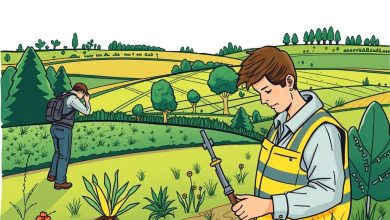Field Service Management for Smart Irrigation Controllers

Introduction
Field Service Management (FSM) has become increasingly crucial in modern agriculture and urban landscaping. With the advent of smart irrigation controllers, FSM has evolved to incorporate cutting-edge technology, enhancing efficiency and sustainability in water management. This article explores the intersection of FSM and smart irrigation systems, focusing on how these technologies work together to optimize resource allocation and improve crop yields.
The Rise of Smart Irrigation Controllers
Smart irrigation controllers have revolutionized the way we manage water distribution in agricultural settings and residential landscapes. These advanced devices use sensors, weather data, and soil moisture readings to determine optimal watering schedules. By automating the process of irrigation, smart controllers reduce waste, conserve water, and promote healthy plant growth.
Key Features of Smart Irrigation Controllers
- Real-time monitoring: These controllers continuously monitor soil moisture levels, temperature, and other environmental factors to adjust watering schedules accordingly.
- Weather integration: Smart controllers take into account current and forecasted weather conditions to prevent overwatering during rainy periods or underwatering during dry spells.
- Customizable programs: Users can create personalized watering schedules based on specific plant types, soil composition, and climate conditions.
- Remote control: Many smart controllers allow users to adjust settings remotely through mobile apps, ensuring timely interventions even when away from the property.
- Data analytics: Advanced models provide insights into water usage patterns, helping farmers and landscapers identify areas for improvement in their irrigation strategies.
Integration with Field Service Management Systems
The integration of smart irrigation controllers with FSM systems represents a significant leap forward in agricultural and landscape management. This synergy allows for more efficient scheduling, improved resource allocation, and enhanced decision-making processes.
Benefits of FSM-Smart Irrigation Integration
- Optimized scheduling: FSM systems can automatically generate optimized service schedules based on real-time data from smart irrigation controllers, ensuring that technicians visit properties at the most opportune times.
- Predictive maintenance: By analyzing data from smart controllers, FSM systems can predict potential issues before they occur, reducing downtime and improving overall system reliability.
- Improved customer satisfaction: With real-time updates on water usage and system performance, customers receive better support and guidance, leading to increased satisfaction with both the irrigation system and the FSM services.
- Enhanced data-driven decision making: FSM systems can leverage the wealth of data generated by smart irrigation controllers to make informed decisions about resource allocation, equipment upgrades, and operational improvements.
Challenges in Implementation
While the integration of FSM and smart irrigation controllers offers numerous benefits, there are several challenges that need to be addressed:
- Compatibility issues: Ensuring seamless communication between different hardware and software components can be complex, requiring careful planning and testing.
- Data security: The sensitive nature of agricultural and landscape data necessitates robust security measures to protect against unauthorized access or breaches.
- Training requirements: Technicians and managers may require specialized training to effectively utilize the integrated FSM-smart irrigation system.
- Cost considerations: While the long-term benefits are substantial, the initial investment in smart irrigation controllers and FSM systems can be significant, potentially straining budgets for smaller operations.
Case Studies and Best Practices
Several companies have successfully implemented FSM-smart irrigation controller integrations, demonstrating tangible improvements in efficiency and productivity.
Example 1: Precision Agriculture Farm
A large-scale farming operation in California implemented a FSM system integrated with smart irrigation controllers across its 500-acre property. The result was a 30% reduction in water consumption while maintaining optimal crop yields.
Key takeaways:
- Regularly update firmware and software to ensure compatibility and optimal performance.
- Conduct regular audits of system performance to identify areas for improvement.
- Provide ongoing training to staff on best practices for utilizing the integrated system.
Example 2: Urban Landscape Management Company
An urban landscaping company serving high-rise buildings in New York City adopted an FSM system paired with smart irrigation controllers. This led to a 25% decrease in water usage and a 15% reduction in maintenance costs.
Best practices:
- Implement tiered pricing structures based on actual water usage data.
- Offer premium services for clients who want detailed reports on their water consumption and system performance.
- Develop partnerships with local water conservation organizations to promote the benefits of smart irrigation systems.
Conclusion
The integration of Field Service Management systems with smart irrigation controllers represents a significant advancement in agricultural and landscape management. By leveraging real-time data and predictive analytics, FSM-smart irrigation combinations offer unprecedented levels of efficiency, sustainability, and cost-effectiveness.
As this technology continues to evolve, it’s likely that we’ll see further innovations in areas such as artificial intelligence, blockchain-based tracking, and augmented reality interfaces. For field service managers, staying ahead of these developments will be crucial in providing top-tier services to clients seeking to maximize their investments in smart irrigation systems.
By embracing this technology, FSM professionals can not only enhance their own operations but also contribute to global efforts towards sustainable water management and food security. As we move forward in this digital age, the fusion of traditional FSM principles with cutting-edge smart irrigation technology promises to reshape the future of agricultural and landscape management.



